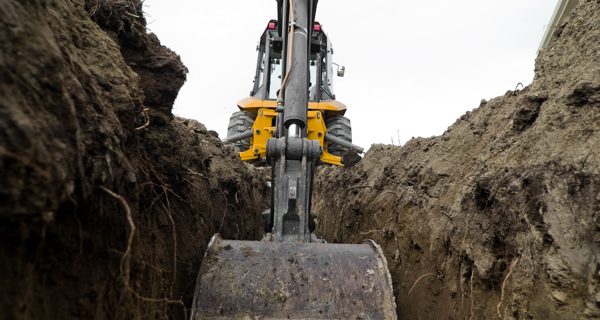Tips for safeguarding your site over the silly season
3min
Discovering your equipment has been stolen, damaged, or that someone has been injured on your site during the holiday season is the last gift any business owner wants to receive.
We’ve put together a checklist that you can follow when securing your site to avoid an incident during the break.
Construction sites that aren't adequately secured are at higher risk of theft and malicious damage. Statistics from the Australian Institute of Criminology show a significant increase of over 30% in these kinds of criminal offences during the holiday period, most of which are avoidable if the correct security measures are implemented.
Malicious damage and vandalism are common, while theft is also prevalent over the holiday season, as opportunists and professional criminals alike take advantage of vacant sites, with unsecured, manoeuvrable equipment an easy target. Plant and equipment with reputable brand names in good working condition are especially vulnerable as they can fetch decent returns for successful burglars. Other construction materials such as metals are also not immune to theft.
As the international market for stolen plant and equipment grows, so too does the cost to Australian businesses. In 2017, it was reported that construction site theft costs Australia an average of $2 billion and it was revealed that organised international crime rings were targeting hire plant and equipment.
Hirers, owners and operators of mobile plant and equipment are urged to take extra precautionary measures during the holiday period as incidents add additional pressures and potential delays in work right at the start of the New Year.
Unsecured sites also pose a risk to members of the public, including falls from partially built structures and scaffolding, live electrical power, open excavations or building waste and rubble.
“It’s essential to understand that if something goes awry, you may be liable and that the liability cost may be significant” says NTI’s Underwriting Leader – Mobile Plant, Product & Strategy, David Kidd.
“The best way to prevent these occurrences is to maintain a clean and organised area, and to have site supervisors carry out a few simple checks to ensure safety.
“If a site is near homes, parks or other recreational areas you may need to be extra vigilant, as health and safety risks to the public are higher, particularly when inquisitive children or pets may be in the vicinity.
“Dealing with a serious incident isn’t on anyone’s wish list, so we are encouraging everyone to leave enough time for a thorough clean up and safety check before knocking off for the holidays," he adds.
To reduce the risk of theft, damage and injury you should:
- Appropriately manage inventory; Keep a log of all equipment serial numbers for insurance purposes
- Install sensor lights and /or alarm systems to deter intruders
- Add identification to equipment such as Data Dots, etching or tags; this helps in the recovery process
- Install vandal covers to all machinery to avoid malicious damage and deter break ins
- Fit machines with GPS tracking systems and immobilisers
- Install lockable reservoir caps to the fuel and hydraulic systems on equipment
- Ensure that all hydraulic pump and engine access areas are locked and secure
- Install audible and/or back to base alarms
- Ensure appropriate fencing, secured gates and boundaries are in place
- Secure access points with locks or other mechanical means
- Block gaps under and between fences and gates
- Install security cameras; they are not just a crime deterrent, but essential evidence in the event of an incident
- Consider after hours security patrols
- Brace partially built structures such as walls and roofs; this prevents them from becoming airborne in the event of strong winds or bad weather
- Remove all equipment and machinery from the site including chemicals and harmful substances; alternatively, make sure that all materials are locked away
- Brace boundary fencing
- Ensure electrical safety by turning off the main switch and secure the main switchboard
- Backfill excavations or ensure they are covered
- Remove unwanted construction materials and waste, including emptying the bins
- Make sure your plant and equipment is insured with a specialist mobile plant underwriter; then you’ve got an expert on the case and your business is covered if you need to make a claim.